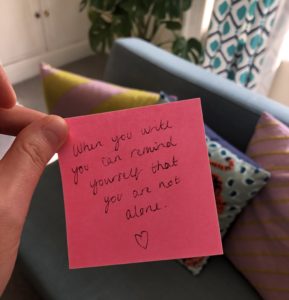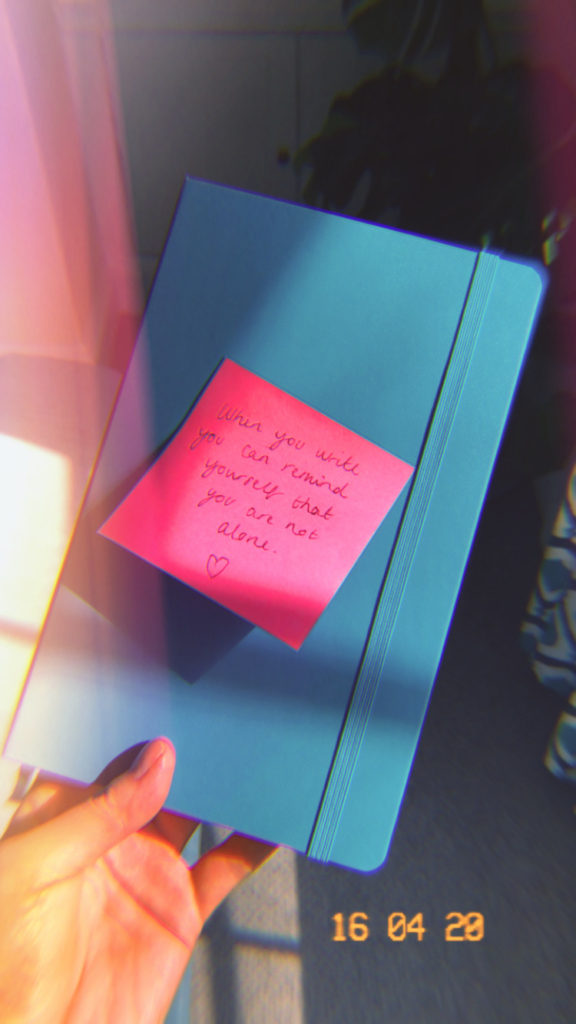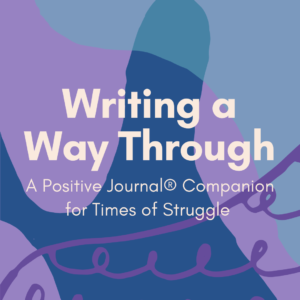I’ve been alone in my home for over three weeks. My main social interaction right now is my ceramic Anthropologie soap dish in the bathroom that says ‘Good Morning’ on it.
I’ve been feeling lonely.
What about you? The lockdown in response to the current Coronavirus crisis in the UK – and in many other nations around the world – is taking its toll on us all, albeit in very different ways. Some are working on the frontline. Some are struggling to be cooped up with others. Some of us are simply… by ourselves.
Solitude can, of course, have its own distinct pleasures. Chronic isolation is another matter altogether
Even before this crisis, we were a nation struggling with loneliness.
For me, solitary walks among the spring blossoms have helped – as has sharing this via Instagram with pithy bits of poetry to help me feel connected to friends and loved ones.
What has also helped, as it always has, is to write out what I’m feeling.
When I have experienced loneliness in the past (or times of turmoil, struggle, disenchantedness, all of the above…) I have written in a journal. For me, a journal is a practice of going inward to ask ‘am I okay?’ or ‘what might help right now?’ I write to understand my difficult emotions and to celebrate my most life-affirming ones (the latter being the reason for founding Positive Journal®).
In these lonesome weeks, I’ve found myself asking: what might a Positive Journal practice mean for right now? For this shaky, uncertain, overwhelming, lonesome, isolated time…
Two free guides to Positive Journal writing
It feels to me that now, just like always, we need to tune into our positive emotions.
If you know my work at all then you’ll know that by this I don’t mean tune out of the very real and urgent crisis that is unfolding, but rather approach this crisis with hope, with pockets of serenity, with awe at our collective effort to overcome, and with redemptive moments of joy. Why? Because these emotions soothe and – importantly – motivate us when we need it most.
I’ve created two journal ‘companions’. These each offer a free guide to starting a Positive Journal. The first sets out the basic principles of this practice. The second is for writing your way through struggle (say, for example, loneliness).
Journal writing, loneliness and belonging
One bit of research into journal writing that I’ve recently come across reminded me of the power of writing in the second person in a diary (i.e. addressing ourselves as ‘you’ rather than writing with the first person ‘I’). This mode of writing seems, more than others, to facilitate a sense of helpful dialogue with oneself. I’ve incorporated this in my guide, Writing a Way Through.
In my own research – particularly a series of interviews I did with creative writers as part of my PhD – I’ve noticed how writing is a way of belonging (the opposite of loneliness).
Writing helps us feel less alone.
Maybe this is because we are communicating in a shared language, maybe because we hope someone might one day read our writing, or maybe because writing – whether a story, poem, or page in a journal – reminds us we are connected to a narrative larger than us.
Share a note
Do you remember, in school, passing notes to friends? In the days before smartphones this was an established part of my school day. Perhaps you weren’t sitting with your pals and you wanted to feel connected to them anyway. Perhaps you had some vitally important gossip for them that just couldn’t wait until lunch…
Well, I propose we share some notes with one another now. To draw attention to the unifying and consoling power of writing in times of isolation, I invite you to #shareanote today, and everyday throughout your lockdown, wherever you are in the world.
The guidelines
To participate:
- Use your social media (Instagram, Twitter, or Facebook) to share an image of some simple words of encouragement in the second person (e.g. ‘if you’ve brushed your teeth you’re doing great today’). This might be a little insight from your own journal that day, or simply a reminder you would like to offer yourself and that might help others feel a little more motivated & connected.
- The image might be a page in your journal, something written on a post-it, a scribble on a scrap of paper, words on a napkin – anything at all. It’s the note that counts, not how it looks.
- Add the hashtag #shareanote so that we can all find your image.
- Join in any time, in any language, wherever you are in the world.

I can’t wait to share some notes with you. You aren’t alone.
Megan x

